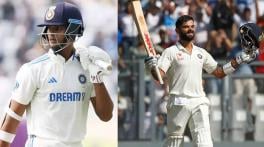How Shoaib Malik stained his legacy on English soil
The veteran all-rounder is set to end his ODI career on the lowest of notes following a disastrous World Cup 2019 campaign

For the first time in the leftie’s career, runs weren’t flowing. He was averaging 18.62 across 16 innings, proving right his mentor's hunch that he was “flat-lining”. But who quits when you’re still just 32 and the captain?
Yet, on Sep 3, 2018, England’s Alastair Cook announced his retirement.
Could he have milked another few years from his career? Absolutely, as he demonstrated just that in his final match, signing off with a 71 and 147 against India. He didn’t though, for he knew the game may not have left him but it was leaving him.
Scene changes.
It’s New Zealand v Pakistan in UAE; batting average drops from 34-something for career to 19-something for the series; next assignment is away in South Africa; batting numbers again hover at around 23; next up are Australia at home; numbers are back up to career level but nearly half were compiled in lost causes.
The signs were there for the then 36-year-old Shoaib Malik, but unlike Cook, he ignored them. Perhaps, leaving on a high wasn't high on his priorities. He instead did what so many other ageing compatriots of his had done before him. Afridi did it, Inzamam did it, and now it was his turn to outstay his welcome until an unceremonious exit finally stared him in the face.
And Shoaib Malik, it seems, after having passed on so many respectable exit points, is finally at a juncture where, when he retires, any tears shed will be of relief.

The respectable exits he passed on seem even stranger in comparison with his shrewd decision to quit Tests in 2015. Having been recalled in the five-day format after half a decade, he scored a double-century against England but surprisingly announced his retirement at the end of the series.
Why? He knew that he had somehow piled up 245 against England in the dead of the UAE but he had punched way above his weight — a fact certified by his five subsequent failures in the series. He could have played another few series on the basis of that near-250 but he knew he was out of his depth in the format and could never have topped that.
To be this shrewd then, and not even be a little bit now, doesn’t add up.
One could say that Malik’s game had truly started deserting him circa 8-9 months ago only, and by that time he had already decided that the 2015 World Cup would be when he would hang up his well worn-out gloves. The team’s plans were already in place, too, and he was part of them.
But here’s the thing. Before his trip to England this summer, Malik’s career average in England was 13.63 — around 22 less than his overall average. After his latest round of failures, his UK-specific average has dropped to 13.07.
More horror numbers: Malik’s batting average in World Cups is 16.66. No wonder he wasn’t picked for the 2011 and 2015 editions when he was in the prime of his career. This is another debate in itself. A player who wasn’t part of the World Cup squad at the ages of 29 and 33, was suddenly deemed good enough for the same job at 37.
Digression aside, Malik has known all his cricketing life that he doesn’t have the game for English conditions. When the World Cup was awarded to England in 2006, he should have decided there and then that this is the one he sits out or bows out before.
Read: Pakistan's biggest underperformers of World Cup 2019
Perhaps, it was the lure of more paychecks, the attention the stage brings or even the regret of missing the last two tournaments that made him do otherwise.
Here was a cricketer of limited abilities and gifts who carved out a decent career for himself, somehow put himself in a position where he ascended to captaincy, and all of that put together raised his profile enough for him to become something more than just a cricketer.
As the late Bob Woolmer once said:
Shoaib Malik is the sharpest tactical tack in Pakistan.
For such a fellow, who’s done so well for himself on most fronts, to be this careless with his career twilight puts a major blot on his CV.
Let this be a lesson for superstars of yesterday to not drag on their careers long enough that they become big-name liabilities and end up denting their legacies.














Comments